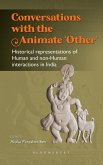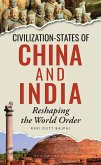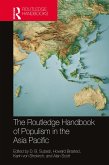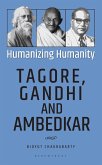Humanizing Humanity is distinctively framed advocacy of the ways in which the concept of humanity has been defended by various ideologues of India like Tagore, Gandhi, and Ambedkar. By grounding itself in the epistemology of intellectual history, the book delineates how these three major thinkers visualised the ways in which society can be better humanized. Such a process of humanization for these thinkers forms the bedrock of the trajectory in which humanity may be preserved, amidst intense authoritarianism and the violent quest for power by a small minority in the society.
The book is an attempt at exploring the strands of inter-textuality that exist when Tagore, Gandhi and Ambedkar's thinking is situated in the ontic and epistemic context of a few humans' tendency to destroy humanity and the efforts of another section to create conditions for its preservation. Bidyut Chakrabarty does this by comparing the ways in which the Federalist Papers of the United States of America and the Indian Constitution manifest as quintessential texts that uphold the principles of liberty, equality, justice, and the protection of the weaker sections of society from structured strands of domination and exploitation.
The book is an attempt at exploring the strands of inter-textuality that exist when Tagore, Gandhi and Ambedkar's thinking is situated in the ontic and epistemic context of a few humans' tendency to destroy humanity and the efforts of another section to create conditions for its preservation. Bidyut Chakrabarty does this by comparing the ways in which the Federalist Papers of the United States of America and the Indian Constitution manifest as quintessential texts that uphold the principles of liberty, equality, justice, and the protection of the weaker sections of society from structured strands of domination and exploitation.









